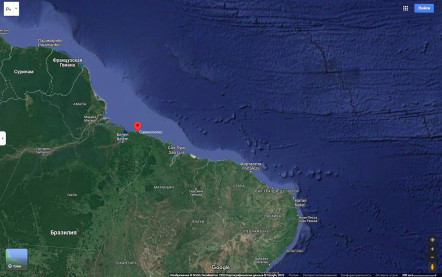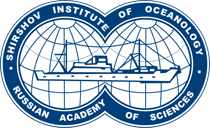 The 52nd voyage of the RV Akademik Boris Petrov started on October 17, 2022.
The 52nd voyage of the RV Akademik Boris Petrov started on October 17, 2022.
On November 21, the Brazilian phase of research work began. A detachment of coastal observations was created from 4 specialists from the IO RAS, who have solid experience in working in new climatic conditions and in unfamiliar terrain. They started their work in the city of Belen (-1.45 S, -48.48 W), which is located on the coast of Marajo Bay (Brazil). The purpose of the detachment was to assess the ecological situation of the coastal zone of the Amazonian selva within the littoral zones of the Atlantic, estuaries and estuarine areas of rivers. The group included: hydrophysicist Alexander Izhitsky, geochemist Anastasia Drozdova and hydrobiologists Philip Sapozhnikov and Olga Kalinina. Further, the detachment moved to the city of Salinopolis, located more than two hundred kilometers north of Belen, already on the Atlantic coast.
Based in an enclave of civilization, at the end of an alluvial spit surrounded by mangrove forests, the IO RAS staff spent 10 days traveling along the surrounding shores. Observations and collection of materials were carried out within a radius of 50 km from Salinopolis, in coastal settlements, as well as on the vast sandy littoral areas of the city, the width of which reaches over 500 meters at low tide. The coastal waters of small fishing ports located at the confluence of rivers and estuaries, mangroves of various types and wild sandy shores were studied.
The main attention was paid to the general picture of plastic pollution of the coast, landscapes that contribute to varying degrees to the accumulation of plastic debris, the origin of macroplastics and its typification, the collection of overgrown plastic samples for microplaston structure analysis, as well as phytoplankton fishing and soil sampling for microphytobenthos analysis. Scientists studied 8 areas of the coastal zone, which are significantly spaced apart in area and differ in the degree of anthropogenic load.
Preliminary findings are that over 80% of macroscopic plastic debris on the Atlantic coast in the areas studied is single-use packaging (PET bottles, bags and foam). Previously, scientists concluded that most of this garbage is brought by rivers through estuary zones, from port settlements and other large settlements located on rivers. About 90% of labeled plastic is of Brazilian origin. The beaches in small villages are clean. The rest of the material is still being processed.
After 10 days full of observations, gathering and moving along dirt roads in the jungle, the group returned to Belen, met with the head of the stage, DSc Petr Olegovich Zavyalov and left for Moscow with a large number of samples and specimens. Specialists of the IO RAS, who carried out a complex of coastal observations in the equatorial Amazon, are grateful to DSc E.G. Morozov, Chief of 52 voyage of the RV Akademik Boris Petrov, for active participation in the organization of coastal observations, P.O. Zavyalov - for help and support in creating and ensuring the existence of the coastal detachment, and to the nice guy Stephen, the manager of the bungalow hotel on the northern outskirts of Salinopolis, and his family - for the warm welcome and help in developing new opportunities.
https://ioran.ocean.ru/en/index.php/novosti-instituta/1137-complex-of-coastal-observations-in-the-equatorial-amazon#sigProIddb7900e178




